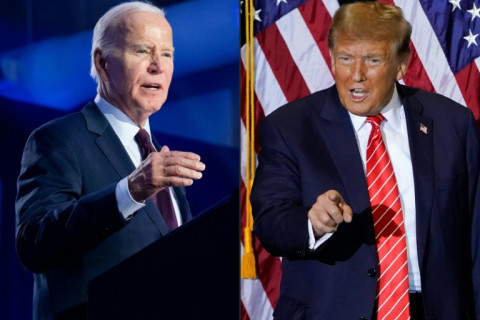JP Morgan CEO: Americans Are in 'Good Shape' Financially and 'Still Have Money From COVID'
Inflation Surged to 3.5% in March, Exceeding the Fed's 2% Target

JP Morgan CEO Jamie Dimon has been widely criticised for suggesting that average Americans are doing well financially despite rising inflation and stagnant interest rates putting a strain on household budgets.
Dimon sparked outrage with comments on The Wall Street Journal podcast, "The Journal." Dimon, whose net worth is estimated at £1.67 billion ($2.1 billion) by Forbes, stated that consumers "still have excess money from COVID."
Downplaying concerns about the economic impact on everyday Americans, Dimon told interviewer Emma Tucker, "The consumer's in pretty good shape right now." However, last month, Dimon himself predicted inflation would stay high, potentially harming the US economy in the near term.
Public Outrage Over Jamie Dimon's Comments
As expected, his latest remarks were slammed online, including by one furious TikToker left in disbelief after the head of the US largest bank claimed Americans are 'still spending down funds handed out during the pandemic.' As expected, backlash erupted online following comments by Dimon, who played a key role in a bank rescue effort last year.
The statement sparked outrage, particularly among those struggling with high inflation and stagnant wages. One furious TikTok user expressed disbelief, highlighting the disconnect between Dimon's perspective and the reality faced by many Americans.
"My jaw was dropped at the sh** he was saying. It is so f***** out of touch. This is the largest bank in America," TikToker Anna, who uses the handle @creativechronicles, said in a viral response.
"The consumer has, you know, unemployment under 4 percent has been there for two years. They still have excess money from COVID," Dimon told the podcast. He further noted that the US spent a whopping £4.78 trillion ($6 trillion) during the unprecedented pandemic.
"Through various means and various programs, they're still spending it down," he noted. Dimon went on to claim that "housing prices are up, stock prices are up, and jobs are plentiful." Unsurprisingly, he has been catching flak for those comments.
"I'm sorry, what? The stimulus checks that went out in 2020 and 2021, three and four years ago, we're still spending it down? Who is he talking about, people are not doing well," Anna, who uses the handle @creativechronicles, said in response.
"This country is literally unaffordable, childcare, groceries, you've got Kellogg's out here telling us to eat f****** cereal for dinner. Everything is up in price," the user wrote in the comments section. Faced with polls showing low consumer confidence, Dimon claimed the economic woes stemmed from "different consumers."
Rising Inflation Puts Dimon's Remarks in Question
Dimon acknowledged that incomes for the lowest 20 percent of earners in the United States have stagnated over the past two decades, with minimal growth. However, he offered a potentially positive sign, noting that recent data suggests their incomes might finally be on the rise for the first time in nearly 20 years.
"Remember suicide, fentanyl, crime, inflation, there are a lot of negative effects. Some people can't get mortgages, can't buy the home, so yeah, there's part of society who's kind of struggling. There's part of society who's not."
Still, many Americans will likely be surprised to learn that the struggles are not limited to the bottom 20 percent of the country. Annual inflation surged to 3.5 percent in March, exceeding the Federal Reserve's target of two percent. In response, the Fed raised the base interest rate to its highest level in the past few years. The goal is to curb inflation by increasing borrowing costs.
However, inflation remains high, and the Fed has yet to begin lowering rates. Grocery bills have been rising due to inflation. While some studies suggest significant increases, averaging around £860 ($1,080) per month according to HelpAdvisor, government data from the Bureau of Labor Statistics indicates a monthly average closer to $475 in 2022.
An analysis by the Wall Street Journal found that a basket of groceries that cost £79 ($100) in January 2019 would cost around £108 ($136) today due to food price inflation.
© Copyright IBTimes 2024. All rights reserved.






